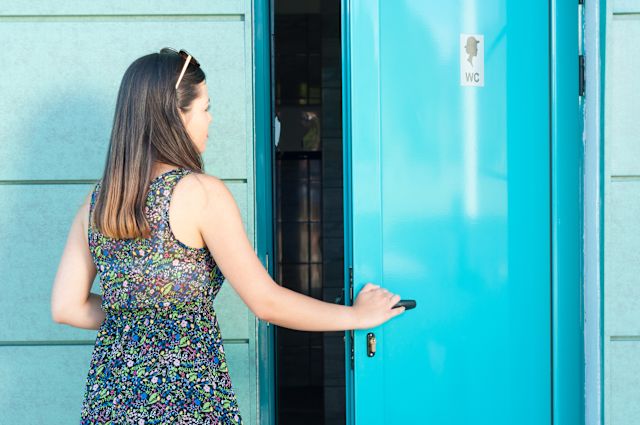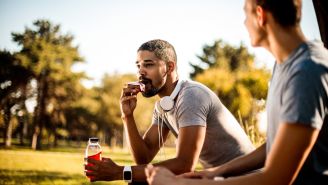Updated on April 28, 2025.
Odds are you’ve sat on a public toilet seat and realized—too late—that it’s wet with someone else’s urine. It’s an unpleasant experience, no doubt. But is it hazardous to your health? What’s the worst that could happen?
“You’ll get wet,” says Robin Miller, MD, a member of the Sharecare advisory board and co-author of The Smart Woman’s Guide to Midlife and Beyond. “And you’ll be grossed out.”
While it may be concerning, it makes more sense to talk about what won’t happen if your skin comes into contact with another person’s pee. Here are some things you might worry about, but likely don’t need to.
Bacteria
“Urine is sterile,” says Dr. Miller. “Even if someone has a bladder infection, the bacteria aren’t going to survive outside of the body.” For example, you aren’t at risk of contracting a sexually transmitted infection like chlamydia or gonorrhea if you sit in urine. You have to have sex with someone who’s infected with the bacteria that causes it.
Viruses
Viruses such as the herpes virus and the human papillomavirus (HPV), which causes cervical and other cancers, “can’t survive outside the body,” says Miller. As with bacterial infections, the primary way to become infected with one of these viruses is through intimate contact with an infected sexual partner.
The chances of human immunodeficiency virus (HIV) infection are also zero. “HIV only can be transmitted via blood or during sex,” says Miller. “And even if you happen to sit on menstrual blood left behind on a toilet seat, you aren’t at increased risk of infection. The risk of contracting HIV from a toilet seat is nil.”
Crabs (pubic lice)
The primary way to catch these microscopic parasites is having close sexual contact with someone whose pubic or genital area is already infested. There is an extremely rare chance of getting crabs from a toilet seat. Crabs can’t survive long off of a warm human body, and their legs aren’t made to hold onto a smooth surface like a toilet seat.
As for dealing with your damp thighs, Miller says to dry them off with clean toilet paper. If you aren’t rushing and spot pee before you sit, you can use a toilet seat cover to avoid getting wet.
Hot spots for restroom germs
This isn’t to say public bathrooms are devoid of potential health hazards. Faucets, doors, and other often-touched surfaces can harbor many germs, which is why it’s a good idea to avoid touching your mouth while using the restroom. Bacteria may be floating around in the air, as well. Flushing a toilet releases tiny liquid droplets contaminated with pathogens, which poses a small risk that a person may inhale them.
The risk for acquiring an infection from a public restroom is small, however—especially if you wash your hands properly. Make sure to wet them, lather them with soap, and scrub for at least 20 seconds. Get between fingers, under nails, and the backs of your hands. “Do this before putting on make-up, if you plan to do that,” Miller says.
Finally, dry your hands thoroughly. If you have a choice, you may want to use paper towels rather than a hot air blower to dry your hands, as some studies have suggested that using hot air dryers may spread existing bacteria in the air.







